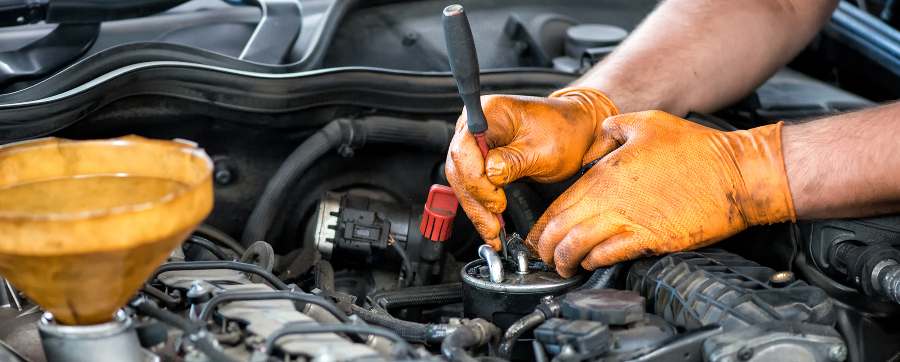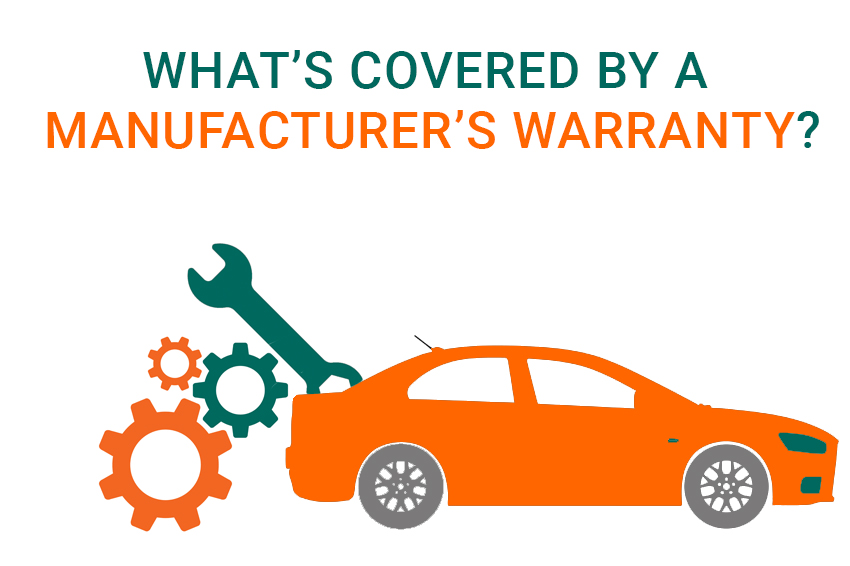When you get a new vehicle (whether lease or purchase) you will benefit from the cover provided by a manufacturer’s warranty. If you experience any problems with the vehicle during the warranty period any repairs (within reason) are covered.
So, what is a manufacturer’s warranty? What does a manufacturer’s warranty cover? Which manufacturer provides the longest lasting warranty? We’ll be answering all those questions and more.
What is a manufacturer’s warranty?
Every new car is supplied with some kind of warranty from the manufacturer. With a few exceptions, this warranty will cover anything that goes wrong with the car within a specified timescale. It is designed to protect the buyer from the financial burden of repairing any problems with the vehicle during initial ownership.
Many manufacturer’s use the warranty as a selling point, such as Kia. The company has a 7-year warranty, but other companies have since jumped on the bandwagon. Both Ssangyong and MG have introduced a 7-year warranty for their vehicles.
A long warranty is a great selling point as it’s felt, for obvious reasons, that if the manufacturer has that much faith in its products the company is willing to offer a long-lasting warranty then it’s a good product.
How long does a manufacturer’s warranty last?
This depends entirely on the manufacturer. Every manufacturer is different. You can be reassured that the minimum length of the warranty offered is 3 years or 60,000 miles (whichever the vehicle reaches first).

It’s also worth being aware that many warranties cover different parts of the car for different lengths of time.
A good example of this is the warranty provided by Citroen. For the first 2 years of the three-year warranty, you’re covered for unlimited mileage and in the third year, you’re covered for up to 60,000 miles. You are also protected for corrosion (rust) for 12-years by Citroen’s anti-perforation warranty, which isn’t affected by mileage. This warranty also covers the repair and/or replacement of components the manufacturer acknowledges are faulty.
This is just one example of a manufacturer’s warranty.

Newsletter Signup
Where can I find information about manufacturer warranties?
We have pulled together a list of manufacturers with links to their online warranty information.
If you’re concerned that your warranty isn’t long enough, then many manufacturers offer the option to purchase an extended warranty.
The price of these varies considerably depending on the manufacturer. However, there is also the option for you to purchase from a third party, but we would recommend while these are often cheaper, they aren’t as comprehensive.
What are the different types of vehicle warranty?
There are three different types of vehicle warranty:
- Manufacturer policy
- Dealer policy
- Third-party cover
As we have already stated, all new vehicles come with a manufacturer’s warranty, though if you need to claim on this you will need to go through a franchised dealership to get the work carried out, as we mention in our article “Who’s responsible for lease car repairs?”.
If you purchase or lease your vehicle from a franchised dealership then any warranty you are given by them will be backed by the dealer. While smaller dealerships (mostly independent) will tend to use third-party companies for warranties and may charge you extra if you want one. We recommend you read through any documentation you are given carefully and getting a quote from somewhere else, as it may cost you less.
Buying a third-party warranty
If you are thinking about purchasing a third-party warranty to extend your cover there are a few things you should know. There are some key differences between a manufacturer’s warranty and a third-party warranty. With a third-party warranty, you will be liable to pay for any repairs upfront and reclaim the cost back. A manufacturer’s warranty allows you to take the vehicle to an approved dealership for repair without charge. While not a very important factor, it can be inconvenient if cash flow is limited when a repair is needed.
Third-party warranties don’t tend to be as comprehensive as a manufacturer’s warranty. In fact, most will only cover the engine and gearbox.
With a third-party warranty, you’ll need to obtain a quote for repairs and ask the warranty provider to agree to these before proceeding. This is to confirm the fault and to check the cost falls within the policy limits. A handy tip, make sure you contact the warranty provider before getting quotes to check that the policy covers the problem. Otherwise, you could be liable for covering the cost of diagnostic work. It’s also worth noting that many third-party warranty companies have a cap on the cost of labour. This could leave you to pay any shortfall or have to find a cheaper garage.
Our advice is to read your warranty documents carefully to ensure they provide enough cover for the expense.
What’s covered by a manufacturer’s warranty?
It’s probably easier to tell you what isn’t covered by a manufacturer’s warranty as most offer extensive cover.
The whole car is covered by a warranty, however, there are usually different warranties that cover different parts of the vehicle.

If you’re leasing or purchasing an electric or plug-in hybrid vehicle (PHEV) you’ll find that the battery and drive system are covered by a second guarantee that runs concurrently with the manufacturer’s warranty.
If you have just received your new vehicle we would recommend you read the warranty documentation you were sent. This will detail all the elements that the warranty for your vehicle does and does not cover.
The purpose of a warranty is to ensure that the mechanical components of the vehicle work as they should while the vehicle is covered by the warranty (be that 3 years, 5 years or 7).
The core components covered in a warranty are:
- Engine
- Gearbox
- Suspension
- Electric system
- Fuel system
- Steering
- Non-frictional clutch
- Safety systems (including brakes)
- Corrosion/rust (this is covered under the anti-perforation policy)
If anything goes wrong with any of the above then the warranty will cover the cost of repair (though usually faulty parts will be replaced).
What isn’t covered under a manufacturer’s warranty?
As previously stated, not all manufacturer warranties cover the same issues. However, there are some things that no manufacturer’s warranty covers. These items are often referred to as consumables:
- Brake discs
- Brake pads
- Cosmetic repairs (to paintwork or the car interior)
- Accidental damage or vandalism
- Tyres
- Belts (fan and timing)
- Batteries
- Light bulbs
- Fluids (oil, antifreeze, brake)
However, just as you can extend a warranty, you can also have additional items added to the policy for an extra cost.






i have a 2019 LTZ astra and one tyre has split on sidewall
is this covered by warrenty
Hi Phil,
Thank you for your comment. A split on a tyre is classed as wear and tear, which isn’t covered under a warranty.
Hi is the brake discs covered under warranty THANKS
Hi John,
Thank you for your comment. Unfortunately, brake discs aren’t covered under warranty.
My car a hyundai tucson broke down after getting it to the dealer they told me the clutch had gone and the flywheel, they sent me a video of the number plate of my car and someone talking about the problem with the car but didn’t video the problem, I was given a price of £780.on the phone to fix the clutch now with the video they sent they now want £1450. I thought the flywheel would be covered by the warranty
Hi Ifor,
Thank you for your comment. I have attached a link to the Hyundai Warranty Page. As you can see, they recommend you contact your local Hyundai Authorised Repairer, who will inspect your vehicle and confirm whether the fault found is a manufacturing defect and covered by the vehicle warranty.
Hello,
I have Hyundai i10se , My car battery keeps going flat even after jumpstarting the car and taking it around my house for 5/10 mins.
If I switch my engine off and start it again the battery is dead. what am I supposed to do? Is this covered by the warranty
Hi Amita,
We have just done some research into the Hyundai warranty, the battery is covered for damage for 2 years (24 months) and unlimited mileage in that period. If your vehicle is still within those first two years then you are covered for issues with the battery. Of course, it may be worth contacting someone regarding this if you are within that timeframe due to the current situation and finding out where you stand.
I brought my car September 2019 and have took it into be serviced and has cost my over 400 pounds for repairs most expensive being the brake pads is this covered as I have only done 3000 miles since I brought it?
Hi Deborah,
Many thanks for your comment. Generally, brake pads are classed as a consumable and therefore not usually covered under a manufacturer warranty. As we have no information on the model you have or the manufacturer, we are unable to provide any further information.
I have a Nissan Qashqai 2018 model with a glass roof brought in January this year. Have just noticed the glass roof has a huge crack on it will this be covered under the factory warranty?
Hi Kim,
We have done a little research and it’s recommended that you contact Nissan or the dealership directly. More information can be found here.
i have a 2019 nissan with a smashed windscreen due to a stone,would it be covered??
Hi Bella,
No, this would not be covered under the manufacturer’s warranty.
Hi, I have a 2018 Audi A5 and the windscreen washer hose has cracked. Would this be covered under warranty ? Thanks
Hi Padraig,
Thank you for your question. According to the Audi warranty (https://www.audi.co.uk/content/dam/audiadaptive/PDFs/FV-Audi-New-Warranty-Terms.pdf) this is not listed as something excluded from the Warranty. This document also goes into how to claim. We hope that this helps.
Hi, I have a 2019 BMW (convertible) approved used car purchased directly from the main BMW dealership in May 2022 and therefore comes with full BMW warranty. The roof has a serious leak (drivers side only) which is saturating the carpet on the drivers side. This was report to BMW early Dec 22 after heavy rain brought it to our attention. After BMW looked at the car late Jan 23 was the earliest they could do despite contacting them many time for an earlier appointment. They stated this is not covered under warranty can this be right? The car has not been in any incidents and is not in any way modified. Thanks in advance
Hi there Nic, thank you for your query. Usually used cars sold by franchised dealers are covered by a 12-month mechanical warranty. We would advise revising your warranty documents to check what the vehicle is covered for – whether that is mechanical or vehicle body.